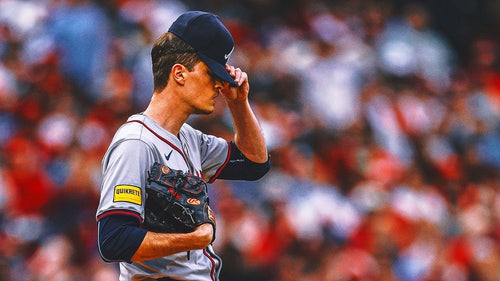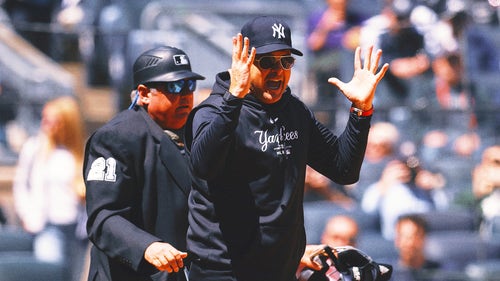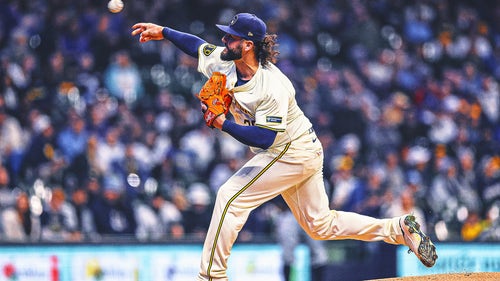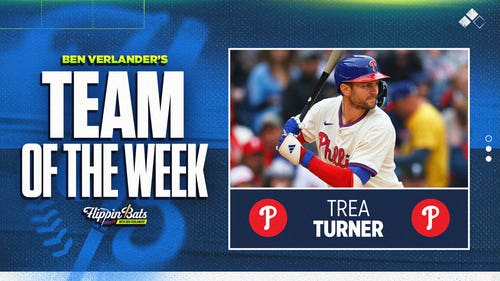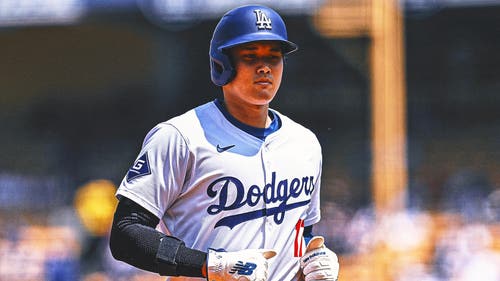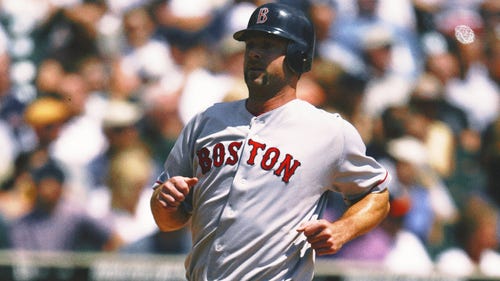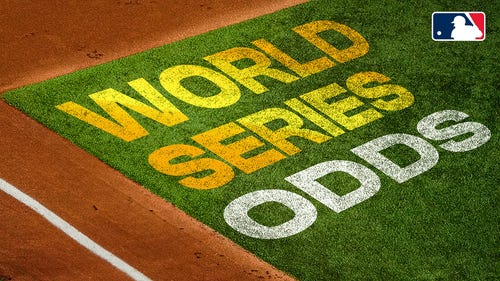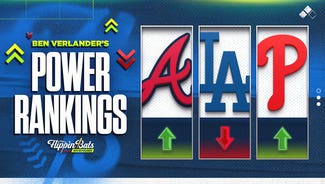
Yankees, Rays, Tigers help themselves in Indy
As has been the trend in recent years, baseball's winter meetings
provided more noise than signal.
With worthies like Roy Halladay, Matt Holliday, Jason Bay and
John Lackey still on the market or trade block, the Hot Stove
hasn't begun to sizzle. With all that said, though, the hootenanny
in Indy provides us with plenty to unpack and analyze. So let's do
just that. "A job well done" or "Much more to do"? Each major
player at the meetings falls under one of those categories.
A job well done
1. Yankees
The trip to Indy was a fruitful one for baseball's reigning
colossus. Most notably, they hauled in Curtis Granderson without
compromising the major-league roster. Granderson is one of the
smartest, most appealing players today (exposed socks and lots of
triples make for an appealing player). He'll give the Yankees
quality defense in center, and even in his "down" campaign of 2009
he hit .275 AVG/.358 OBP/.539 SLG against right-handers despite
playing his home games in a run-suppressing environment. And
speaking of environments, Yankee Stadium figures to be
ideally
suited to Granderson's power tendencies. Don't be surprised if
Granderson next season is good for 35-plus bombs. Yes, he needs to
be religiously platooned, but otherwise he's an ideal fit.
GM Brian Cashman also is to be praised for bringing back Andy
Pettitte on a one-year deal. It's early yet in the offseason, but
the maneuverings to date make the Yankees the favorites to repeat.
2. Rays
In 2009, Tampa spread the save opps around by necessity. But
now that the Rays have traded for Rafael Soriano, they'll enjoy
certainty in the closer's role. Soriano sports a career ERA of
2.92, and he has the peripherals to justify it (more whiffs than
innings and a 3.51 strikeout-to-walk ratio). And throughout that
career, he has given up just five unearned runs (despite what the
traditionalists tell you, pitchers
do bear some responsibility for unearned runs). Don't be
surprised if Soriano emerges as one of the best closers in the
American League. All this for Jesse Chavez?
3. Tigers
At first blush, it's tempting to say the Tigers hurt
themselves during their Indiana sojourn. After all, they traded
away Granderson -- one of the most beloved Tigers since the days of
Al Kaline and Willie Horton. But you must grade them on a curve.
Last season, Detroit had the fifth-highest payroll in baseball, and
that's despite surrounding blight and a local economy that calls to
mind Mogadishu during a sanitation strike. Shedding salaries was
bound to happen. On that point, Granderson is headed toward his
high-salary years (he'll make $8.25 million in 2011 and $10 million
in 2012), and that's why he's now a Yankee. The Tigers also parted
with Edwin Jackson, who, despite recent success, is a candidate for
regression in 2010. So they dealt away the arbitration-eligible
right-hander and Granderson in exchange for Max Scherzer, Daniel
Schlereth, Austin Jackson and Phil Coke. That's a nice haul.
Scherzer has blazing stuff, 240 whiffs in 226 1/3 career
innings, and less than two years of service time. Schlereth,
meanwhile, could be the shutdown reliever the Tigers have long
sought. Jackson is certainly no Granderson, but he profiles as a
plus fielder in center and a plus runner on the bases. He also
figures to develop into a league-average hitter in his prime. As
for Coke, he can be useful, but the Tigers -- in contrast with Joe
Girardi and the Yanks -- will need to limit his exposure to
right-handed batters. Considering the hamstrung state of the
Tigers, they fared well.
Much more to do
1. Astros
As if just to prove he didn't learn anything from his days of
lurching for bullpen help in Philly, Astros GM Ed Wade doled out
the most inexplicable contract of the meetings. Three years and $15
million for Brandon Lyon? Sure, Lyon turned in a fine 2009, but his
numbers from this past season are out of step with the balance of
his career. More to the point,
Lyon's
batting average on balls in play was .231 -- an abnormally low
figure for him and one that's almost certainly not sustainable. The
likely consequence is that, in 2010, Brandon Lyon will resume
pitching like, well, Brandon Lyon. And the real Brandon Lyon isn't
worth $15 million. A team like Houston can't afford bad contracts.
More generally, it's long past time for the Astros to
rebuild. They soldier on with half-measure after half-measure, and
there's little to show for it in recent seasons. The core is
getting old, and the farm system is not a strong one. This
organization should be focused on trading away veterans and
restocking the system with high-ceiling young players. Yet
delusions of relevance still guide them.
2. Diamondbacks
As you might guess based on the above Yankees and Tigers
praise, the D-backs -- the third party in the biggest trade of the
offseason -- haven't helped themselves. They parted with a
potential future ace and a potential future closer to get Edwin
Jackson, who's more expensive and has less upside that Scherzer,
the guy he'll replace in the Arizona rotation. Also, Jackson is
ill-suited to his new digs. He's a fly-ball pitcher, and last
season he coughed up 27 home runs despite logging almost half his
innings in Comerica Park -- a park that cuts down on homer rates.
He'll be moving into Chase Field -- a park that increases homer
rates. There's also Ian Kennedy, but he profiles as nothing better
than a fifth starter. As far as the pitching staff goes, the Snakes
got more expensive, but they didn't get any better.
What the D-backs
really need to worry about is improving an offense that
ranked near the bottom of the league in park-adjusted OPS.
Otherwise, they won't have a shot in the NL West.
3. Dodgers
The Dodgers are here mostly because of their questionable
arbitration decisions. Despite claims to the contrary, the Dodgers
are in cost-cutting mode, and that's because of
owner Frank
McCourt's looming divorce. Obviously, this is a team poised to
win now. They barged to the NL's best regular-season record in
2009, but, if anything, they've gotten worse over the winter. The
Dodgers offered arbitration to neither Orlando Hudson nor Randy
Wolf. While you can justify the decision with Hudson (although it's
still not wise), there's no explanation for passing on Wolf. Wolf,
after his success in 2009, was certain to land a multiyear
contract, and indeed he did. So the Dodgers, in essence, threw away
a high draft pick by not offering arbitration to Wolf. That's
either a thorough misreading of the market or stinginess to the
point of absurdity. Smart organizations don't give talent away in
such a manner.
The Dodgers
should> be readying themselves for another playoff run
-- another
highly profitable playoff run. Instead, they're ceding the
division to Colorado.
4. Mets
The Mets have done little so far. That's not necessarily a
problem considering how many name free agents are still available,
but the Mets have a cornucopia of needs. Rotation help, a first
baseman, a catcher, an outfielder, bullpen arms, infield depth, a
realization that Jeff Francoeur is not a major-league regular ...
GM Omar Minaya faces challenge upon challenge. If
the
Jason Bay rumors provide any insight into his thinking, then
Mets fans can commence worrying.
Bay should not be the Mets' signature addition this
offseason. Bay can hit, but, as pointed out many times in this
space,
he's
a serious liability in the field. Since Bay's 2007 knee injury,
his range in the field has been woefully inadequate. Put him in the
spacious CitiField outfield, and he'll negate much of the value he
supplies at the plate. Bay is a great fit for an AL team in need of
help at DH, but he's a bad fit for the Mets, especially given his
likely price tag. The Mets probably won't catch the Phillies no
matter what they do, and adding Bay certainly won't help.
5. Rangers
It hasn't been a fruitful few days for Texas. First, they
traded away the generally reliable Kevin Millwood for Chris Ray, a
pitcher who missed 2008 with injury and notched a 7.27 ERA in 2009.
As
Matthew Pouliot observes, three times in the last 12 years has
a Rangers pitcher worked a qualifying number of innings with an ERA
better than 4.00. Kenny Rogers did it twice, and the third guy was
Millwood in 2009. Indeed, Millwood's peripherals suggest he was
quite lucky last season, but even facing regression he's worth more
than Ray.
Then the Rangers signed Rich Harden, a pitcher who, while
excellent in some regards, is a terrible match for the Rangers'
home yard. As is the case with Jackson in Arizona, fly-ball
tendencies plus gopheritis plus hitter's park do not generally
yield favorable results. If it's not his terminally injured arm or
the Texas heat that does him in this season, then it might be
whiplash. The Rangers have ground to make up on the Angels and the
improving Mariners. Thus far, they're not doing that.
On the bright side,
Tom
Hicks may soon go away.






































































































































